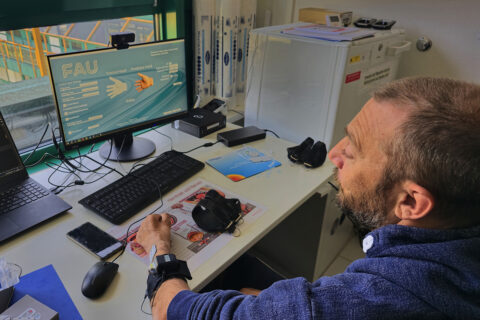AI developed at n-squared lab helps people living with paralysis to move again
The open-source software MyoGestic developed at FAU enables patients to control artificial fingers in real time after an amputation. A wireless cuff with 32 electrodes records the muscle signals initiated by the brain, while an artificial intelligence (AI) compensates for the missing anatomy by learning to translate these signals into precise finger movements. This allows test subjects to try out finger control with minimal learning effort and based on their natural muscle activity.
Read more here.
You can find the original publication here.
DOI: 10.1126/sciadv.ads9150
